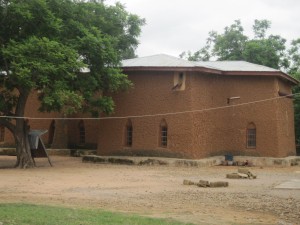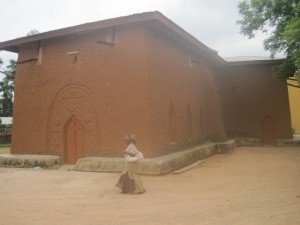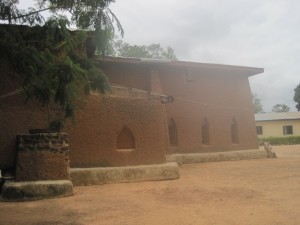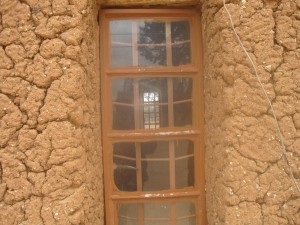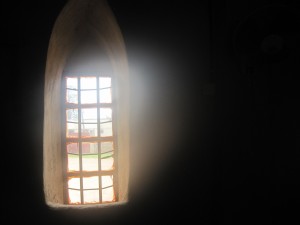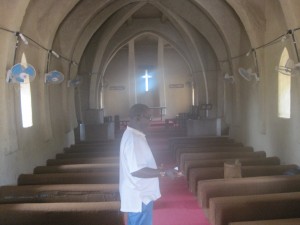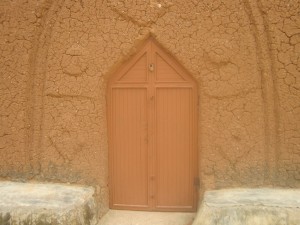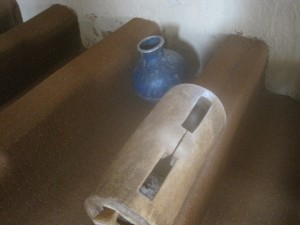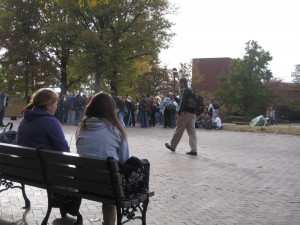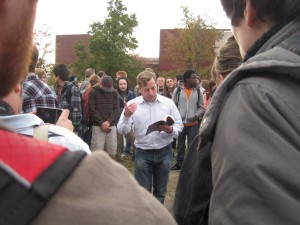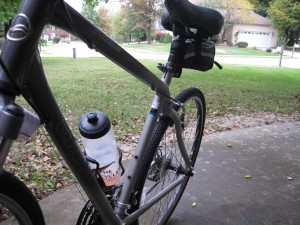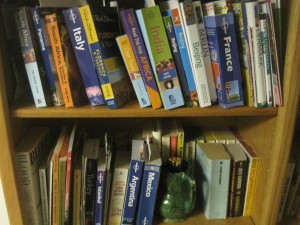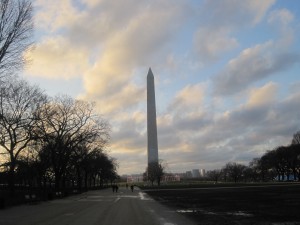 Our house lay at a junction of roads. The first one stretched from an unknown place beyond the mango trees and a public water well in front of the Oguns’ house. Ahead, it reaches out into the dry dusty parts of the village, past the albino barber’s house and farther down into places where now I can’t immediately conjure beyond the sight of leaves, dry wood and old men playing draught on wooden benches outside their unpainted houses. The other road goes past the Bello’s house to the church, then branches towards the main road where tar begins and heads into the town. When put side by side as they both inevitably lay approaching the wide spot in front of the house where we all usually play in the evening around the grown men of the area, they form a dusty wide line of an attempted “v” which ends at the Baale’s house. From there, they part, each again taking up a lonely path to my right into as far as the eyes can see.
Our house lay at a junction of roads. The first one stretched from an unknown place beyond the mango trees and a public water well in front of the Oguns’ house. Ahead, it reaches out into the dry dusty parts of the village, past the albino barber’s house and farther down into places where now I can’t immediately conjure beyond the sight of leaves, dry wood and old men playing draught on wooden benches outside their unpainted houses. The other road goes past the Bello’s house to the church, then branches towards the main road where tar begins and heads into the town. When put side by side as they both inevitably lay approaching the wide spot in front of the house where we all usually play in the evening around the grown men of the area, they form a dusty wide line of an attempted “v” which ends at the Baale’s house. From there, they part, each again taking up a lonely path to my right into as far as the eyes can see.
A mental stepping now out of the big compound of my house into those streets, I stand now, facing the Baale’s house, turning my back to the dusty “v” of the coming road. On to the left, the road veers by the small thrush in front of the house where Lanko Lanko lives, then a little further down it reaches an electric transformer. After that, to the left, is my school, fenced around with a white concrete wall and spiked metal bars. Further down is nothing but gullies and leaves, and a beaten path to where moin moin is sold along with its corn paste companion, into the labyrinths of huts and a maze of households of mud and concrete of old women with intriguing dress patterns and ribald tongues. They knew me and knew that I ran away from them whenever I could, except when I had things to buy. And one of them called me “my husband”. Further down in the centre of the village woods where dirt competed with house animals and putrid smells from collective waste is a large agbalumo tree. It came along with it a myth that it housed spirits that tormented wandering children…
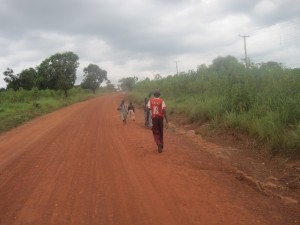 Back to my junction, on to the right are the better, sanctioned spaces of play: the opening towards Mama Lawyer’s clinic, just three houses away. Before that is the kolanut seller, then the farmer and professor’s awesome cottage where I saw a chess board for the first time and wondered why it didn’t look like the draughts boards I’d seen my brother play at home. In there are their three boy children one of whom was around my age, older by about a year or two. Then an orchard of sweet smelling flowers, a corn mill, trees of mango and cashew, and livestock. The cottage opened itself always up as a paradise of treasures, menu, and learning.
Back to my junction, on to the right are the better, sanctioned spaces of play: the opening towards Mama Lawyer’s clinic, just three houses away. Before that is the kolanut seller, then the farmer and professor’s awesome cottage where I saw a chess board for the first time and wondered why it didn’t look like the draughts boards I’d seen my brother play at home. In there are their three boy children one of whom was around my age, older by about a year or two. Then an orchard of sweet smelling flowers, a corn mill, trees of mango and cashew, and livestock. The cottage opened itself always up as a paradise of treasures, menu, and learning.
Mama Lawyer’s clinic, for then and now remains as old as memory. I never saw her husband who was the real lawyer. She has travelled to many countries, we were told, and she had come home to retire, operating the clinic as a way to stay active. Even then, tufts of grey hair already dotted her beautiful hair that kept her demeanour always so disarming. The smile, the warm hug of a mother of all little children, and the music in her voice when she asks “Young man, what have we got today? Aren’t we looking good.” It always made the enduring phobia of needles immediately disappear, if only for the second. So when I get the “fever” as all ailments are called to a six year old, Momma dresses me up in a thick sweater and the right pair of trousers, and we walk hand in hand towards Mama Lawyer’s house, stirring the dust paths of the village’s open roads into the evening sky.
(Photos taken in Jos, Plateau and Obi, Nassarawa. July 2010)

